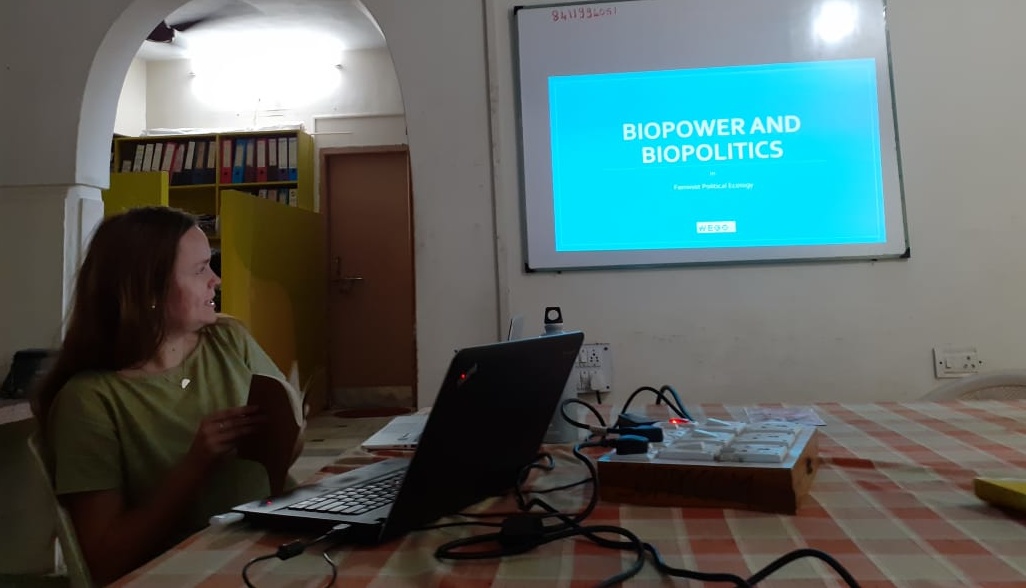I have been on secondment at SOPPECOM in Pune, Maharashtra since the 30th of September 2019. The secondment has formed an essential part of my training and preparation for my fieldwork in India, which will take place in Chennai, Tamil Nadu. I have spent the past few months learning about and understanding the complex dynamics of farmer suicides in the country from the perspectives of widows and women farmers. My work has predominantly entailed researching and writing a literature review on land rights and farm widows in India, which will support the advocacy processes of MAKAAM (a network of women farmers and activists, connected with SOPPECOM). My research has focused on the systemic invisibilisation and silencing of rural women, particularly widows, single or deserted women, and how this silencing has reduced the complexity of the agrarian crisis in India, thus curtailing the abilities of agrarian communities to cope and sustain their livelihoods.
During my time here I was also invited to join a national consultation organised by MAKAAM in Hyderabad, and a workshop on Women’s Land Rights, organised by SOPPECOM in Pune, as part of a wider research and advocacy project in Maharashtra. These experiences gave me valuable insight into the different levels and forms of advocacy happening in relation to women, farming and land rights in India. I also attended a three day workshop onReading Ambedkar, organised by the the Women’s Studies Centre at Savitribai Phule Pune University. This workshop was an incredible opportunity to understand the complexity of caste relations through the writings of Dr B.R. Ambedkar – a social reformer, philosopher, lawyer and Chairman of the Indian Constitution Committee. Taught by V. Geetha, a feminist activist and scholar, the workshop significantly developed my understanding of the interrelation of caste, gender, nationalism and Brahmanism.
These two months have therefore been very intense and I have learnt a lot in a very short space of time. In particular (and on reflection), this secondment has really been crucial in enabling me to connect the dots between global food justice movements (that work through decolonial, feminist and anti-capitalist theory and praxis) with the concerns, realities and advocacy of women farmers in India. I have been deeply affected by the stories of widows and their unraveling of the complexities of the agrarian crisis as it unfolds in their everyday lives. The interconnections between land, patriarchy and caste have therefore become central to my understanding of the agrarian crisis and have brought into focus for me the role of shame as both part of the reason for suicide, and an enduring experience for the women and families left behind. It seems to me that the psychological and embodied traumas experienced by exploited and dependent food producers, so central to their realities, needs more attention within debates around global food justice and alternative food movements.
In collaboration with MAKAAM, I will be continuing the final two weeks of my secondment in Chennai, where I will be meeting women farmers and hopefully working with women’s farming collectives. During this time I hope to explorepossible collaborations for my fieldwork and understand where and how my work can be useful in the context of ongoing advocacy and research processes.


